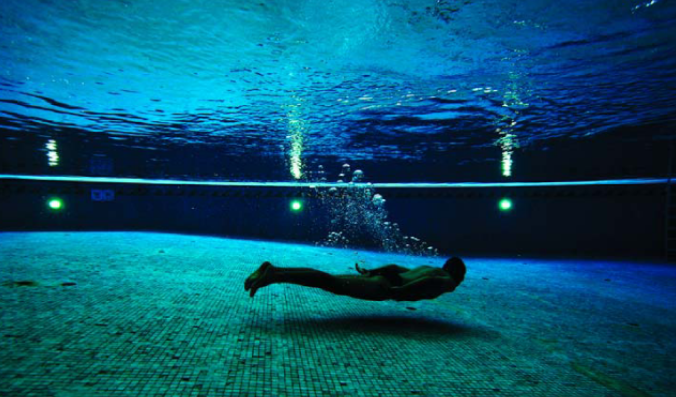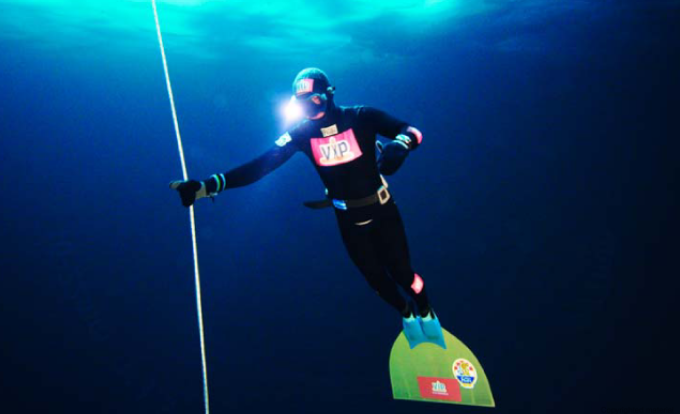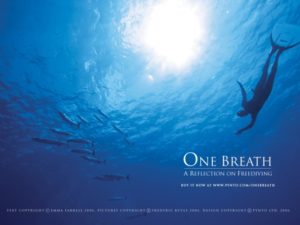Extracts from the book
Extract from Chapter 2 – ‘An Awareness of the Breath’
“An awareness of how we breathe can happen only when we still the body and draw our attention inwards. It’s not about learning ‘how’ to breathe but about unlearning the bad habits we have picked up along life’s way, preventing the free expression of our breath…”
“When you watch a newborn breathe, you see how each breath floods into the belly, every part of the baby’s body quivering with its energy. During a lifetime exposed to stress, pollution, overcrowding, noise and busyness, we lose sight of that which is fundamental to us. Breathing from our upper chests, we round our backs, crushing the life and power out of our breath. Our breath merely exists, it does not flourish.
“Rediscovering our breath can be one of the most difficult things to do. It involves letting go of tension, doubts, fears, old patterns, assumptions and expectations. To fully realise the breath is often a profound moment. Grief, anger and tears can bubble up – as well as laughter, elation and joy – when we finally let go and allow the body to breathe fully.”
Extract from Chapter 3 – ‘Paxos, Greece’
“My eyes closed, rocked by the water, my breath at peace. I relaxed completely. A couple of minutes and sleep was moments away – the time had come – I opened my eyes and focused on the dive. My last exhalation pushed out all the air left in me and I inhaled as much as was possible, gently removed my snorkel and unclipped the safety catch. I let the weight pull me down.”
“With my eyes closed but my focus bright, I pinched shut my nose and exhaled against it. Concentrating on equalising the pressure in my ears, I let the rest of my body relax as I passed through the thermocline, a layer underwater separating the warmer water above from the cooler water below. Equalise, equalise, equalise. I was still descending, the water rushing over my body. Eventually I felt there was no air left to equalise with and I let the weight go, opened my eyes and caught hold of the line.
“I looked down – first a couple of metres to where the weight had stopped, and then twenty metres further to the ocean floor, undulating away forever on all sides. I saw a secret, silent landscape of rocks with grasses moving in a watery breeze. I looked out to see how far it went and saw to my delight a shoal of black fish in the distance suspended like tiny black stars against a blue sky. We all hung there, so still and quiet.”
Extract from Chapter 4 – ‘Holding the Breath’
“Breathe in for a count of two and then out to a count of three. Pause at the end of the exhalation for three beats. Close your eyes. Get used to the sensation of a pause. How does it make you feel? Continue breathing like this until you feel entirely safe and comfortable. Increase the length of your breath until you are breathing gently and with control. Breathe in for three beats, pause for three, out for six and hold for two. Let all tension leave your body with the out-breath.”
“Look at your watch. How many breaths are you taking each minute? Is there any strain? You should be completely relaxed, with no strain on the out- or the in-breath. Delight in the sensation of peace. Breathe out deeply, then in more deeply and very slowly for a count of five and then hold your breath.
“Notice how your body is feeling. Do you feel euphoric? Strange? What passes through your mind?
“Allow shivers of anxiety to pass. Relax into your body, still your mind.
“To hold your breath is to suddenly become still: to become a silent observer and participant in the wondrous workings of our bodies. Feel the sensations as they come and go. Do not be alarmed by them. Feel the first stirrings of the urge to breathe.
“Your diaphragm may contract. Relax some more but do not strain. Ease into the hold.
“And then release, take at least three quick and deep breaths to recover, then breathe through your nose normally.”
Extract from Chapter 12 – ‘Night Dive’
“Our movement on land is ruled by gravity, the force that holds us down to life on a linear plane. From the Latin grav, meaning heavy and weighty, it binds us to the surface of the Earth for life.”
“As a child I dreamed of weightlessness. Frustrated with a clumsy body, I struggled in gym class to spring up and catch, just for a precious second, the feeling of air beneath my feet. Afterwards, lying on hot summer grass, I watched birds wheeling freely on the wing and yearned to feel that lightness. Behind the birds I could see the brushstrokes of aeroplanes, manÂ’s machines that defy natural laws and take us where our bodies cannot.
“Weightlessness, the freedom to move in three dimensions, would always elude me until I learned to slip beneath the surface of the sea and explore a liquid space where fish flitted as freely as birds.
“In space there is no sound, no touch, no smell and no taste – only silent floating. On one breath, under the water, our senses of smell and taste are stilled and our hearing muted. We are left with our sight and the invisible caress of the water moving around our bodies. This narrowing of external stimuli opens the petals of our sixth sense, which flourishes in the void.
“Our sixth sense reveals deep connections and feelings that have no logic and cannot be described with words. It takes us from the tiniest particles within us to the vastness of the universe beyond. We are all separate and at the same time we are all one.
“Often on a freedive I would close my eyes. I wanted to be an astronaut, floating through the dimensions of infinite black space, surrounded by the tiny lights of a million stars. But in the water, sunlight was always playing on my eyelids. To spacewalk on this earth I would have to dive at night.”
£29.99
(or free with any kit bundle purchased)
The book price includes a signed copy with optional personalised message, postage and packing.
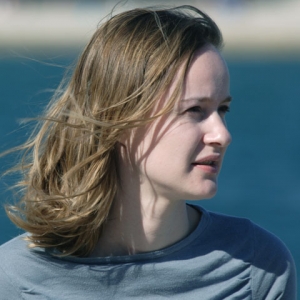
About the Author
Emma Farrell
Freediving Instructor Trainer
Emma Farrell is one of the world’s leading freediving instructors and the author of the stunning book One Breath: A Reflection on Freediving. She has been freediving since 2001 and teaching since 2002. She is an Instructor Trainer with RAID, SSI and AIDA, a founding member of the AIDA Education Commission…Read More
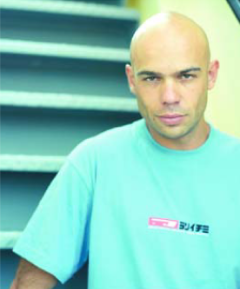
About the Photographer
Frederic Buyle
A world champion freediver, a teacher for many years, and now a photographer who has been published across the globe, Frederic Buyle is unique in his vision and approach. His philosophy is to only take pictures whilst freediving himself, using just the natural light available to him, and to never change the image or direct his subject… Read More

